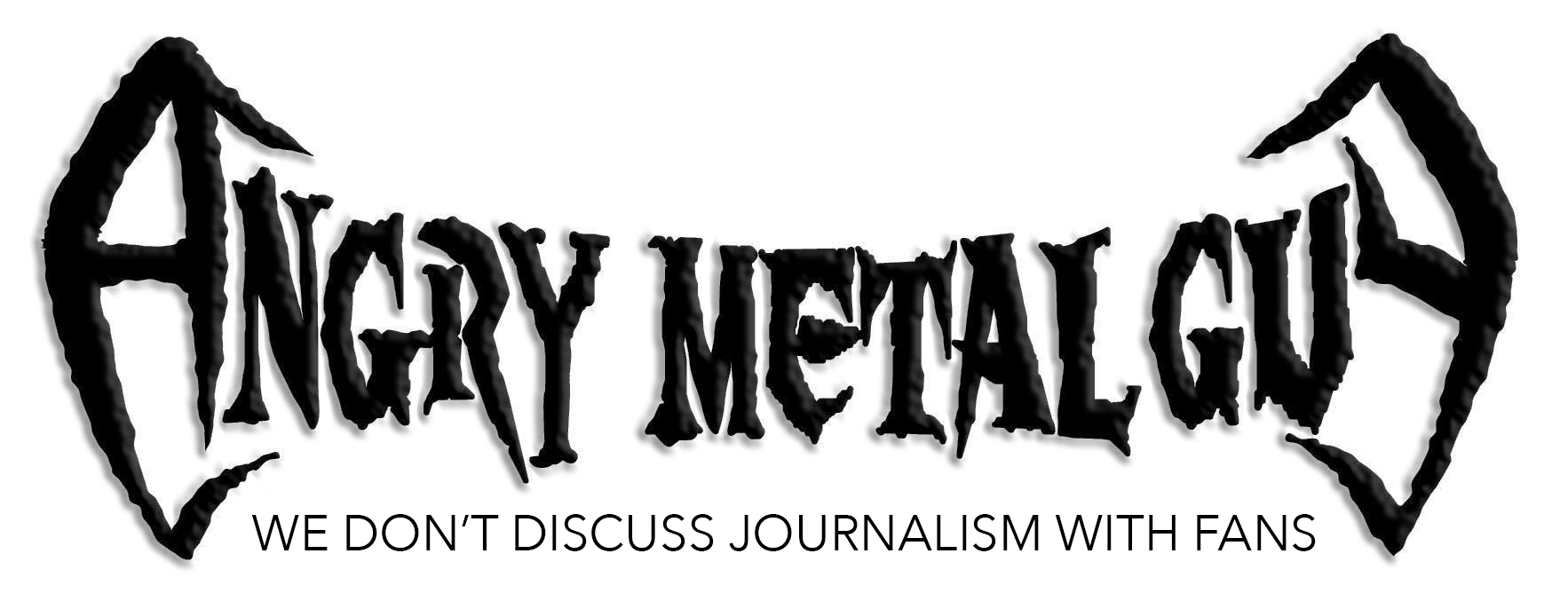By: Alex-Fi
Angry Metal-Fi is a series of articles that are cross posted on Angry Metal Guy and Metal-Fi as a collaborative effort to evangelize dynamics in metal.
 When Dave and I founded Metal-Fi, we were prepared for many things, but the one thing we weren’t prepared for was that Angry Metal Guy would get well, angrier.
When Dave and I founded Metal-Fi, we were prepared for many things, but the one thing we weren’t prepared for was that Angry Metal Guy would get well, angrier.
It all started with his insanely insightful review of the latest Fleshgod Apocalypse album, Labyrinth, where he points out that though the music is chock full of dazzling displays of flamboyant brutality, the record ultimately comes off as “flat and oddly lacks intensity.” He goes on to attribute the record’s uninvolving nature to the amount of hyper compression applied by mix/mastering engineer Saul Morabito – a practice that has unfortunately become modus operandi for the majority of engineers mastering music today.
But what exactly is AMG lamenting about when he talks about the album’s level of compression?
He is talking about a mastering technique called dynamic range compression (DRC) whereby the music’s overall dynamic range, the ratio of the softest sound to the loudest, is reduced in an effort to maximize volume. This process is accomplished by making all the quiet parts louder while lowering or maintaining the louder parts at their respective levels. DRC is typically used in combination with brickwall limiting in order to increase the volume of the record to the absolute peak level before unwanted distortion ensues. The end result is a homogeneous sense of loudness whether the material warranted this artificial boost or not.
But as AMG and many of you are already aware, hyper compression comes at a great cost – namely fidelity. As an engineer compresses the level of dynamic range, the music starts to lose its vibrancy and sense of realism. In fact, certain frequencies can get squashed so badly they become completely inaudible. Ever wonder why you can’t hear the bass or why cymbals and hi-hats sound tinny and don’t reverb quite right? That’s typically DRC coupled with brickwall limiting rearing its ugly head.
Now what AMG did not know until very recently was just how badly compressed Labyrinth was compared to its contemporaries. When he discovered our article on how to measure dynamic range and found out that Labyrinth clocks in at DR4, with the overwhelming tracks dipping into DR3 territory, his anger was finally quantified. To give you a sense of these numbers, DR6 is now the industry average and already considered by most sane engineers as too compressed. The recommended level by most industry experts is DR8 or higher. A bit of a fair warning though, a higher number doesn’t necessarily mean its sounds better, but in the overwhelming majority of cases, it usually does. And applying DRC is not evil in itself either, provided it’s done judiciously. The fact is DRC is an invaluable tool that can make a good sounding record sound great. I highly encourage you to read some of our in-depth articles about dynamic range and why it’s not about the numbers, but about the sound.
So I’m sure you’re wondering though, why sacrifice the music’s fidelity just to make it sound artificially loud?
It stems from the fact that at least initially, our ears perceive louder as sounding better, and labels and artists try to leverage that fact in order to gain market share. The idea is simple, if a label’s roster sounds louder than its competitor, you, the listener, will tend to gravitate toward that label’s louder tracks than the other guy’s softer ones. Moreover, since metal is suppose to be loud, extreme metal artists equate volume with impact. So if a band chooses to master for fidelity instead of loudness, the label or even worse, the fans, can perceive the album as weak which can theoretically ruin sales. Is there any truth to this logic? None whatsoever, but inertia is a powerful force and Labyrinth is a testament to that fact.
This race to the top (or bottom to be technically accurate) has been aptly called the Loudness War, and it has been single handily destroying music since the early 90s. And in case you haven’t figured it out already, you are smack dab in the middle of it.
AMG has graciously invited me and Dave to pop in from time to time to discuss dynamic range, fidelity, and a slew of other issues that you will hopefully find both interesting and provocative. In the meantime, the next time you give into your anger, I want you to listen, really listen, since there is very good chance that when the record was mastered, making it sound louder was more important than making it sound great. And that, my friends, should make all of us angry.



















